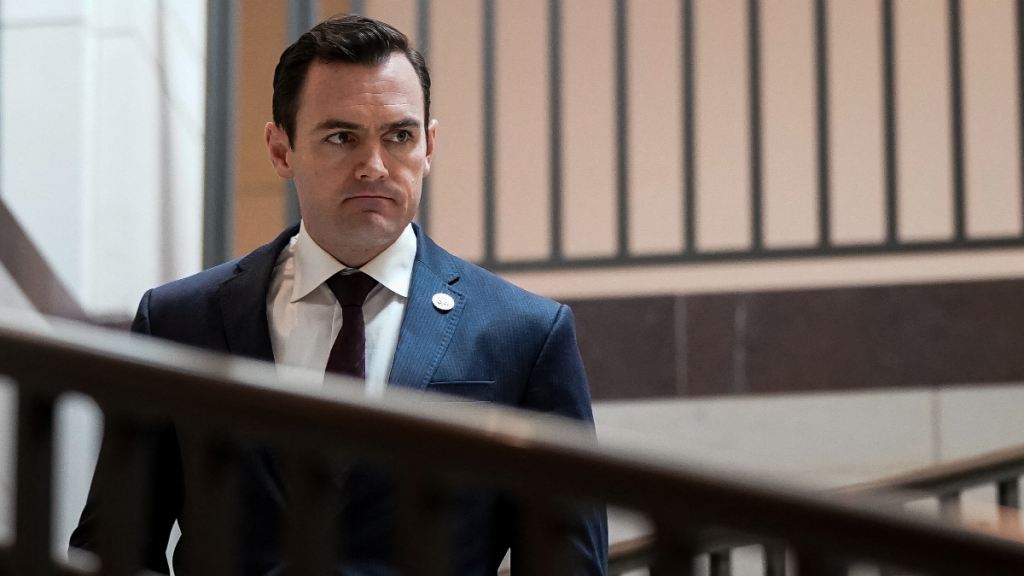
A new U.S. congressional select committee on competition with China held its first hearing with a focus on human rights on Tuesday, amid tense bilateral ties weeks after a suspected spy balloon flying over North America was shot down.
“This is not a polite tennis match. This is an existential struggle over what life will look like in the 21st century – and the most fundamental freedoms are at stake,” Representative Mike Gallagher, Republican chairman of the House of Representatives Select Committee on the Chinese Communist Party (CCP), said as he opened the hearing.
The committee’s leaders saw the hearing, the first of what is expected to be many over the next two years as Republicans hold control of the House, as part of an effort to convince Americans why they should care about competing with China, and to “selectively decouple” the U.S. and Chinese economies.
“Over the last three decades, both Democrats and Republicans underestimated the CCP, and assumed that trade and investment would inevitably lead to democracy and greater security in the Indo-Pacific… Instead the opposite happened,” said Representative Raja Krishnamoorthi, the top Democrat on the select committee, in his opening remarks.
Chinese dissidents attended the hearing. In the last few days, Gallagher and other committee members held several events to draw attention to human rights concerns, including a rally on Saturday outside what U.S. officials call an illegal Chinese Communist Party “police station” in New York.
Gallagher sent a letter to the Federal Bureau of Investigation last week seeking information about such alleged police outposts.
China denies operating “police stations” on U.S. soil.
‘GREAT CHINESE FIREWALL’
Tuesday’s hearing had four witnesses, including H.R. McMaster, a retired Army lieutenant general who was former Republican President Donald Trump’s national security adviser, and Matt Pottinger, a long-time China hawk who was deputy national security adviser to Trump.
McMaster said the United States must put a priority on expediting delivery of billions of dollars of weapons and munitions that Taiwan has already purchased. “As we might have learned from Ukraine’s experience, it is much cheaper to deter a war than to fight one,” he said in his written testimony.
In a nod to growing U.S. concerns about China’s influence on technology, Pottinger said the U.S. government should partner with American technology firms that are banned in China and find a way for people in China to circumvent the country’s strict Internet censorship.
“I think you could punch holes in the great Chinese firewall,” Pottinger said.
In his written testimony, Pottinger wrote that the committee must protect the rights of Chinese Americans by “standing up against bigotry and discrimination here at home.”
“Protect, also, Chinese nationals studying and working in the United States so they can enjoy the freedoms that so starkly distinguish the American way of life from the increasingly oppressive atmosphere in China today,” Pottinger said.
Although the committee is bipartisan, some Democratic lawmakers have voiced concerns that it could fuel anti-Asian sentiment within the United States. Krishnamoorthi referred to such concerns, and the need for bipartisanship, in his remarks.
Also testifying were Tong Yi, a dissident who was jailed in China for more than two years, and Scott Paul, president of the Alliance for American Manufacturing.
Tong, a naturalized U.S. citizen, recounted her time in a Chinese labor camp after she was convicted of disturbing social order for her ties to democracy activists in the 1990s.
Paul called for an end to U.S. dependence on Chinese manufacturing.
A desire for a hard line in dealings with Beijing is one of the few truly bipartisan sentiments in the deeply divided U.S. Congress, with both Republicans and President Joe Biden’s Democrats calling for increased efforts to counteract China’s global influence.
U.S.-China tensions have been especially high of late, over China’s increasingly aggressive military posture toward Taiwan, talk that China may be supporting Russia’s war against Ukraine, and the U.S.’s shooting down on Feb. 4 a Chinese balloon suspected of spying over U.S. territory.
Beijing has denied that the balloon was a government spy vessel.
The select committee has 13 Republican and 11 Democratic members. It will not write legislation, but will draw attention to competition between the United States and China on a range of fronts and make policy recommendations.
WASHINGTON (Reuters)
Inside Telecom provides you with an extensive list of content covering all aspects of the Tech industry. Keep an eye on our News section to stay informed and updated with our daily articles.